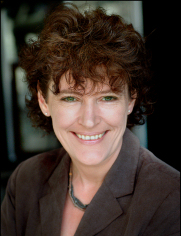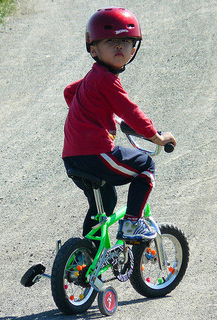There are lots of things that motivate us to do well. We all want to be successful. We want to be proud of our work and we want others to recognize our good work.
Sometimes there is an even more powerful driver to success itself: the worry that others will criticize our work.
When we are working from this fear we are coming from a place where everything has to be perfect. The problem is that we are rarely perfect. Since we are rarely perfect we don’t try because we are afraid of the criticism that will result from our imperfection.
Recently I was working with a client named “Brian” who was having a hard time taking action because he needed things to be perfect. During our session we found that he believed the following:
- I have to be perfect at everything.
- When I am not perfect it feels horrible.
- I am not living up to what I should live up to.
- Others will look down on me.
- I am going to let myself down.
- I am going to feel foolish when I fail.
- Therefore, I am only going to attempt things I know I can do perfectly.
These beliefs were serving Brian well. They spared him the misery of feeling foolish by avoiding the conditions that required him to be perfect.
The problem was that everything didn’t really need to be perfect. The consequences he feared were not real but because of this fear of what would go wrong if he wasn’t perfect, he wasn’t trying anything at all.
So we tapped:
I don’t have to be perfect at everything…there are lots of things where I just need to do well enough…I don’t have to tie my shoes perfectly…I don’t need to make a sandwich perfectly…I don’t have to make the bed perfectly…there are lots of things in my life where all I need is to do them well enough…this doesn’t mean that I will stop striving…this doesn’t mean that I will stop striving for excellence…but I am going to keep everything in perspective…I am going to give myself permission to know that I can do some things well enough without having to do them perfectly.
This round of tapping created a greater sense of peace for Brian, but he could still feel some resistance. For some reason it was still a standard he felt he needed to live up to so we continued the work by going after the definition of perfect:
It is good that I am trying to be perfect…this is rooted in wanting to do my best…this is rooted in wanting to become my best self…but perfect isn’t about getting everything right…perfect is about doing the best that I can…perfect is about living in this moment…perfect is being able to be thankful for this moment…perfect is being able to recognize that in this moment I get to choose who I am…in this moment I get to learn more about myself in the world…perfect is being easy enough with myself that I know I will get another chance…perfect is striving to be my better self…I am always going to be a work in progress…I am never going to do everything perfectly…but I can live this moment as perfect…by striving to be my best…this moment can be perfect because I can learn from the things I am not doing perfectly
This created more peace and relief for Brian. It also created a belief that he could move forward without having to be perfect. As we were doing the tapping described above, Brian remembered his father’s need for perfection from Brian, even when he was a young child. We then tapped to clean up the emotions in those memories.
The need to be perfect, or the fear of what will happen if we aren’t, is one of the most common reasons we don’t take action. Tapping is great for working on that part of you that needs to be perfect.
[Note: Are you looking for tools to help you get out of your own way and achieve what you really want? Check this out]



 What have you found works well when tapping with kids? What mistakes have you made from which you have learned? Click here to
What have you found works well when tapping with kids? What mistakes have you made from which you have learned? Click here to 





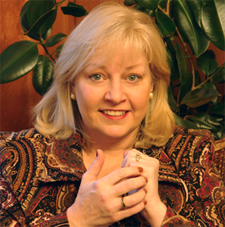



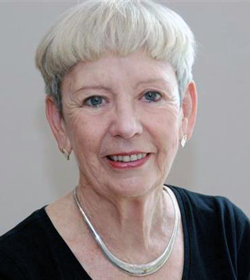
 Deborah Miller’s Newsletter – Deborah is probably best known for her work with children with cancer. She has a wonderful newsletter from which I have
Deborah Miller’s Newsletter – Deborah is probably best known for her work with children with cancer. She has a wonderful newsletter from which I have  Karen Nueman’s Newsletter – Sadly Karen passed away in Feb. 2013. She is greatly missed!
Karen Nueman’s Newsletter – Sadly Karen passed away in Feb. 2013. She is greatly missed! Practical Wellbeing – Practical Wellbeing is written by England based practitioner Andy Hunt. One mistake I think a lot of sites make is that they produce lots of very average material. Andy puts up a new article every few weeks which is always thoughtful, well-written, and informative.
Practical Wellbeing – Practical Wellbeing is written by England based practitioner Andy Hunt. One mistake I think a lot of sites make is that they produce lots of very average material. Andy puts up a new article every few weeks which is always thoughtful, well-written, and informative.  Sarah Holland Twitter Feed – Sarah is a practitioner who specializes in fertility issues. Her Twitter feed is often filled with great framing questions as well as awesome set-up phrases to tap to, all in 140 characters. Find her (even if you don’t have Twitter)
Sarah Holland Twitter Feed – Sarah is a practitioner who specializes in fertility issues. Her Twitter feed is often filled with great framing questions as well as awesome set-up phrases to tap to, all in 140 characters. Find her (even if you don’t have Twitter) 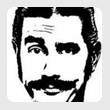 You Are Not So Smart – The motto of You Are Not So Smart is “A Celebration of Self Delusion”. In each article and podcast David McRaney looks at a new piece of research about the mind in an irreverent and funny way to see how delusional we are about the way we see ourselves and the world. There are many things from this site that have transformed the way I work with clients and how I do my own tapping work. Articles and podcast:
You Are Not So Smart – The motto of You Are Not So Smart is “A Celebration of Self Delusion”. In each article and podcast David McRaney looks at a new piece of research about the mind in an irreverent and funny way to see how delusional we are about the way we see ourselves and the world. There are many things from this site that have transformed the way I work with clients and how I do my own tapping work. Articles and podcast:  PsyBlog – Jeremy Dean’s PsyBlog is devoted to the most recent interesting (!) developments in psychology. When working with clients it is really important to understand where people are coming from and why they make the choices they make. As a bonus Jeremy also shares offbeat studies that will make you smile even if you don’t learn anything new. Read more:
PsyBlog – Jeremy Dean’s PsyBlog is devoted to the most recent interesting (!) developments in psychology. When working with clients it is really important to understand where people are coming from and why they make the choices they make. As a bonus Jeremy also shares offbeat studies that will make you smile even if you don’t learn anything new. Read more:  Radiolab – Radiolab is the happy marriage of science, art, day-to-day life, and the choices we make. I always learn something from Radiolab. The show has transformed my understanding of how the brain works and how scientific concepts meet daily life. If I were to create a university degree program I would want this show to be in the core curriculum. Radio show and podcast home:
Radiolab – Radiolab is the happy marriage of science, art, day-to-day life, and the choices we make. I always learn something from Radiolab. The show has transformed my understanding of how the brain works and how scientific concepts meet daily life. If I were to create a university degree program I would want this show to be in the core curriculum. Radio show and podcast home:  Marc and Angel Hack Life – I am not the biggest fan of the self-help industry (though it would be very easy to argue I am part of it). I am suspicious of platitudes and affirmations. Marc and Angel Hack Life is a total revelation in the self-help blog world. Each post is to the point and immediately useful. I have written many tapping scripts inspired by their work and point of view. Website:
Marc and Angel Hack Life – I am not the biggest fan of the self-help industry (though it would be very easy to argue I am part of it). I am suspicious of platitudes and affirmations. Marc and Angel Hack Life is a total revelation in the self-help blog world. Each post is to the point and immediately useful. I have written many tapping scripts inspired by their work and point of view. Website:  Get Bullish – Jen Dziura writes two weekly columns for the b5media network of blogs. It is best described as life and career advice for kick-ass women. Jen doesn’t pull punches, doesn’t get caught up in fluffy cuteness, and is all about moving forward. Transformation work is about being able to level with yourself about what is really going on. Whether you want to or not, Jen is going to make you do that. Jen’s work can be found at
Get Bullish – Jen Dziura writes two weekly columns for the b5media network of blogs. It is best described as life and career advice for kick-ass women. Jen doesn’t pull punches, doesn’t get caught up in fluffy cuteness, and is all about moving forward. Transformation work is about being able to level with yourself about what is really going on. Whether you want to or not, Jen is going to make you do that. Jen’s work can be found at 